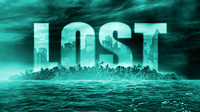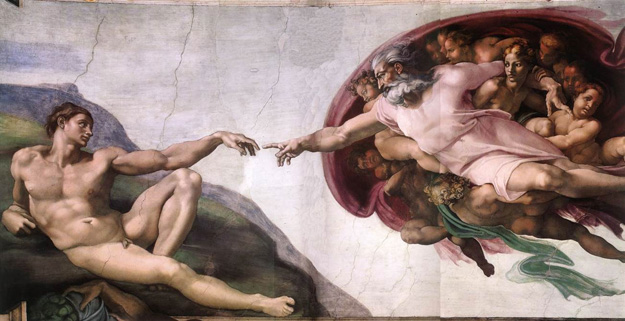 After six seasons, Lost ended last night. Maybe you were aware of it.
After six seasons, Lost ended last night. Maybe you were aware of it.
I’m not going to try to recap or analyze the mind-blowing finale in any way, other than to say you can count me among the viewers who were satisfied with the way the series wrapped up. It was ambiguous, of course, and kind of sad in places, but also ultimately hopeful. And that’s as good a way as any to close a show that was always ambigusadtimately hopeful.
Anyway, I’ve watched, faithfully, from the very first Jack eyeball in the very first episode to the last one. And Lost has taught me a few things that are good for me to know. Here they are:
1. You won’t always find the answers to your questions, and that’s OK. Lost was famous for introducing more mysteries than solutions, even in this final season when everyone expected at least a little resolution. And, yes, we got a bit of island backstory and some important revelations, but a bunch of questions were just left hanging. Like, what role did Walt play? I ended the first season thinking Walt was the key to the whole thing, but he pretty much disappeared. (Primarily because kids look different as they age and he had to be written out, but still…)
I have a lot of questions without much resolution. Sometimes I wish I could just get the answers in a big download, but that’s not how life works. There’s a lot of mystery involved whether you have faith or no faith, as we discussed last week. Life is more enjoyable when you reach the point where you’re OK with that, which leads to…
2. Even if you don’t get it, you can still enjoy the story. I don’t know how many episodes I watched of Lost where I had no clue what was going on. Especially with all the time-travel this season and the early Dharma discoveries of season 2. But the storytelling was always so strong that I was OK being in the dark. The narrative was so compelling that I could set aside my confusion and get caught up in the characters and situations. Life is better when you can do that. We’re all living a story (thanks, Don Miller!) and there will be times when we have no idea what’s happening around us or where we’re headed. So we can press pause and get frustrated, and we can let the uncertainty stop us altogether. Or, we can relax and try to enjoy where we are and what’s happening and let it unfold.
3. Second chances are good. The castaways Jacob brought to the island — Jack, Kate, Sawyer, Hurley, Locke, Charlie, Sayid — were all broken and deeply flawed. The island gave them a chance to start over. Redemption and salvation are at the heart of the Christian story and were at the heart of Lost. Even the lying, manipulative Benjamin Linus got to start over fresh, and honorably, in his sideways timeline. I need that chance, too, and in admitting that I also need to realize that it’s my duty to offer others the chance to redeem themselves.
4. People can remain surprisingly attractive, even after weeks and weeks of dirt, injury, chaos, and primitive living on an island. I’m just sayin.’
5. Faith and reason are a core human conflict, and always will be. After five years of playing up the central worldview battle between Jack (reason) and Locke (faith), the creators flipped it in this final season and, ultimately, Jack won out as a man of faith. If only because Locke died and turned into deadly smoke. But anyway, my biggest internal conflict is the faith/logic, belief/science one, and I figure it’ll always be that way this side of the final fade-to-black. See #1 and #2.
6. Even the best things will disappoint you. Despite six years of awesomeness, Lost was capable of some real clunkers, from weird plot twists (Nikki and Paulo, the glowy island center) to dropped storylines (Walt, and that whole season 1 to-do about the dangerous future of Claire’s son, Aaron) to whole episodes (that Bai Ling one about Jack’s tattoos). No one is perfect. That’s why we need redemption. But stunt casting doesn’t help much, and I’m talking to you, whoever hired Allison Janney to play the island’s mama.
7. It’s good to keep the end in sight. The best move the producers of Lost ever made was the decision to set an end date for the series. Had they not done that, I think they would have struggled against the tendency to keep introducing questions and plot circles and weird islandy juju and never fully wrap things up. The series would have gotten bloated with mystery — and not the important kind of mystery. Lost could easily have wasted a lot of time on fluffery, but a pre-determined series end made it consider of each piece of the story in the most economical terms. How important is this scene or idea? Does this contribute to the overall plan? Does it drive the plot forward and in the direction we want it to go? If the answer to any of those questions was NO, then I imagine the fat got cut out. A limited amount of time means simplicity. It means placing greater value on certain things and then sticking to that decision.
How much more meaningful would my life be if I lived it with my eyes on the “final episode,” so to speak? I would waste a lot less time. I’d make the most of every conversation, event, and relationship. I would pursue the most important story lines and ignore the stupid things. I would pay attention to the things that matter — like family and friends and love and justice. My life, thankfully, doesn’t have a set expiration date. But I know there’s one coming. And the best life is one lived with that end point in mind.
8. Nobody does it alone. So true.
————–
Thanks, Lost. I spent a lot of time with you. I’m glad it hasn’t been wasted.
Your turn. What has Lost taught you?

